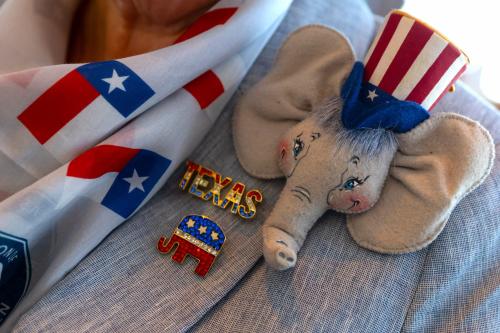Last week I made the case that Senator Sanders’ “Medicare for All” plan would require some “New Deal”-style taxation—that is to say, new payroll taxes on the middle class. Guess what: it does. Hillary Clinton was quick to sense an opening, saying in Sunday’s debate: “I’m the only candidate standing here tonight who has said I will not raise taxes on the middle class.” Clinton’s assumption is that any talk of a middle-class tax increase is toxic to the average voter. That’s been the conventional wisdom in the Democratic Party for thirty years—but the evidence is pretty weak.
It is counterintuitive, but true: taxes on the middle class are popular. In fact, payroll taxes, which fund Social Security and Medicare and are often the most expensive taxes for a middle class family, are among the most popular taxes that Americans pay.
One reason is that Americans feel they understand payroll taxes. First, they know and like where the money goes. Social Security and Medicare are what social scientists call “proximate and visible” spending—the kind of tangible, close-to-home programs Americans are happy to pay for. Knowing more about their future Social Security benefits increases Americans’ confidence in the system. People also understand where the money is coming from. In an open-ended survey question, I asked 1,000 Americans to recall what taxes appeared on their paystubs. Most people not only remembered their payroll taxes, but knew these taxes paid for Social Security and Medicare for the elderly. Costs Americans understand and benefits they see—no wonder payroll taxes are comparatively well-liked.
This is not to say that Americans want the rich to get off easy. In fact, most Americans want a progressive tax system that falls more heavily on the rich; they are just willing to pay taxes themselves, too—as long as they know where the money is going.
It has been an article of faith in the Democratic Party that any tax increase has to be limited to people making over about $250,000. This is the promise Bill Clinton made, and the one made by Barack Obama, and now, the one made by Hillary Clinton. In the past, Senator Sanders has taken a similar line. During the debate on Sunday, his rhetoric changed. Asked if he was planning to raise taxes on the middle class, he said, “Correct.”
In the next few weeks, as Clinton and Sanders spar for the Democratic nomination, we will find out if a broad tax increase is the political liability it has widely been believed to be. Perhaps the fiscal premise that underwrote Social Security and Medicare, the landmark legislation of the New Deal and Great Society, is back on the Democratic agenda.


Commentary
Clinton v. Sanders: New Democrats or the New Deal?
January 19, 2016